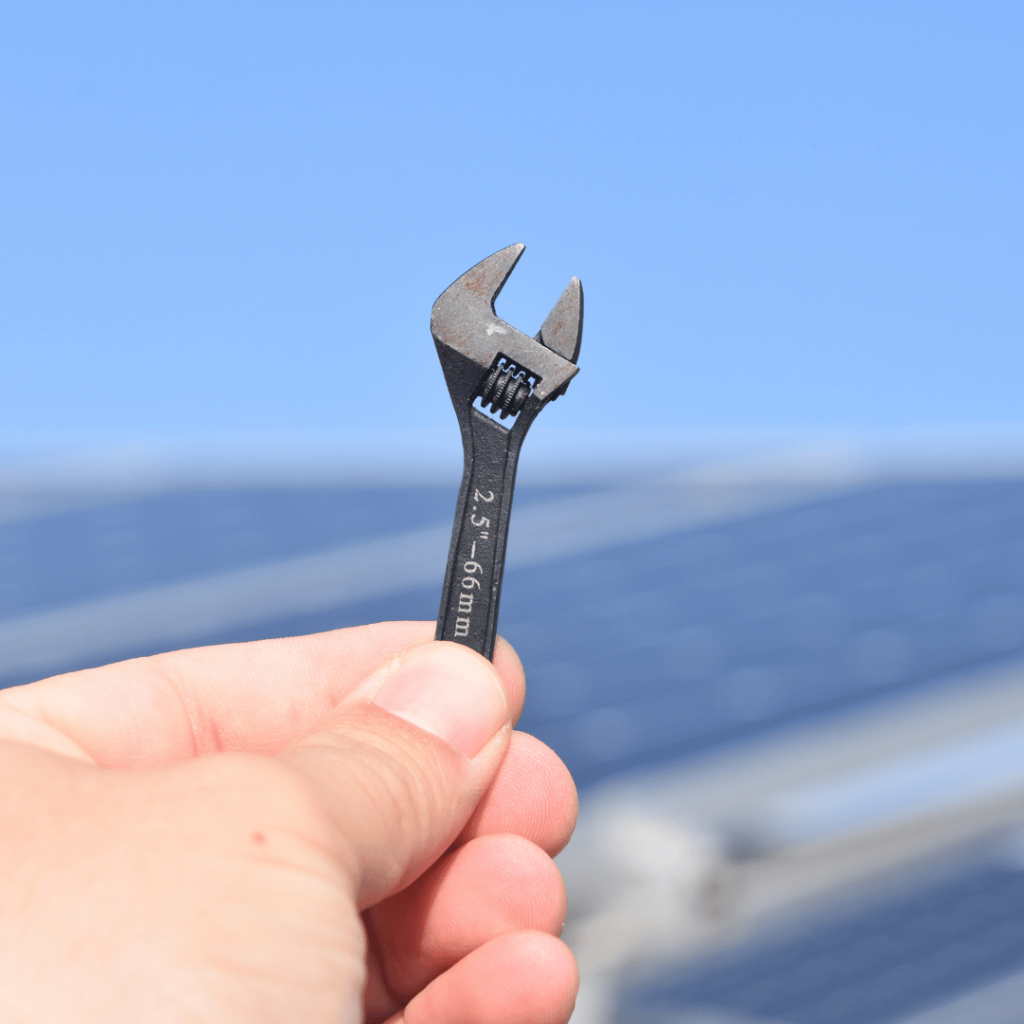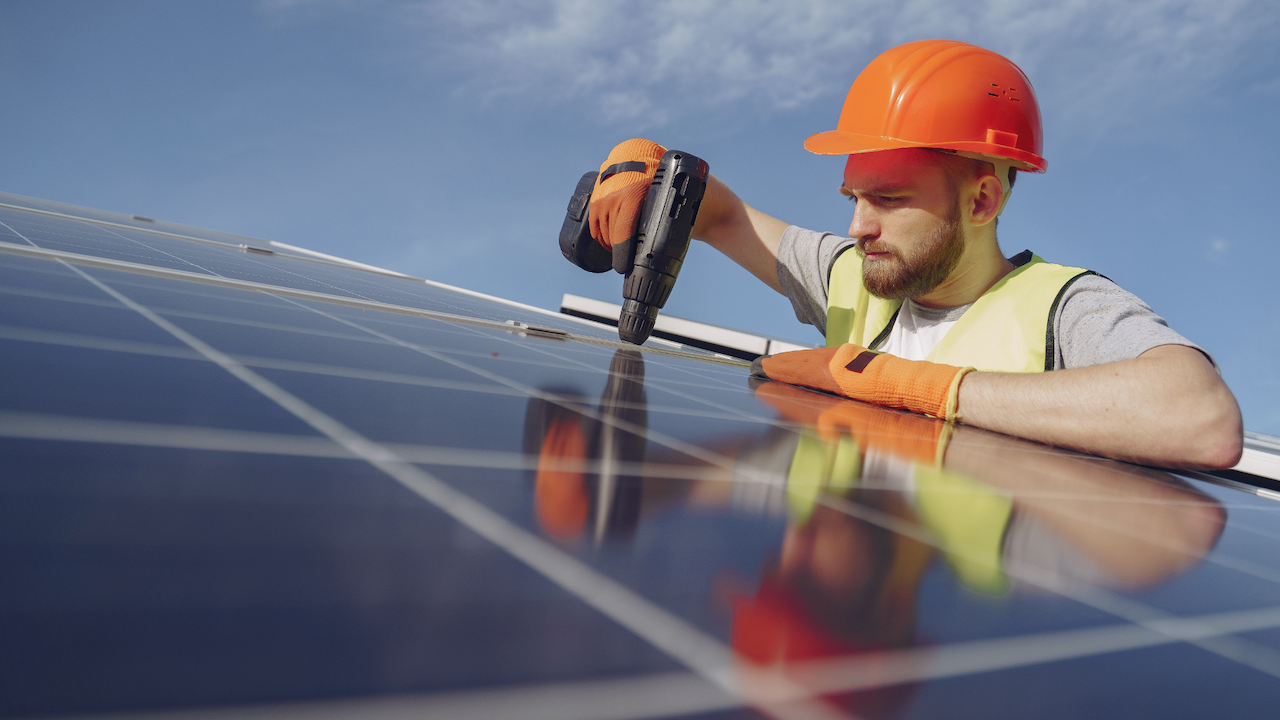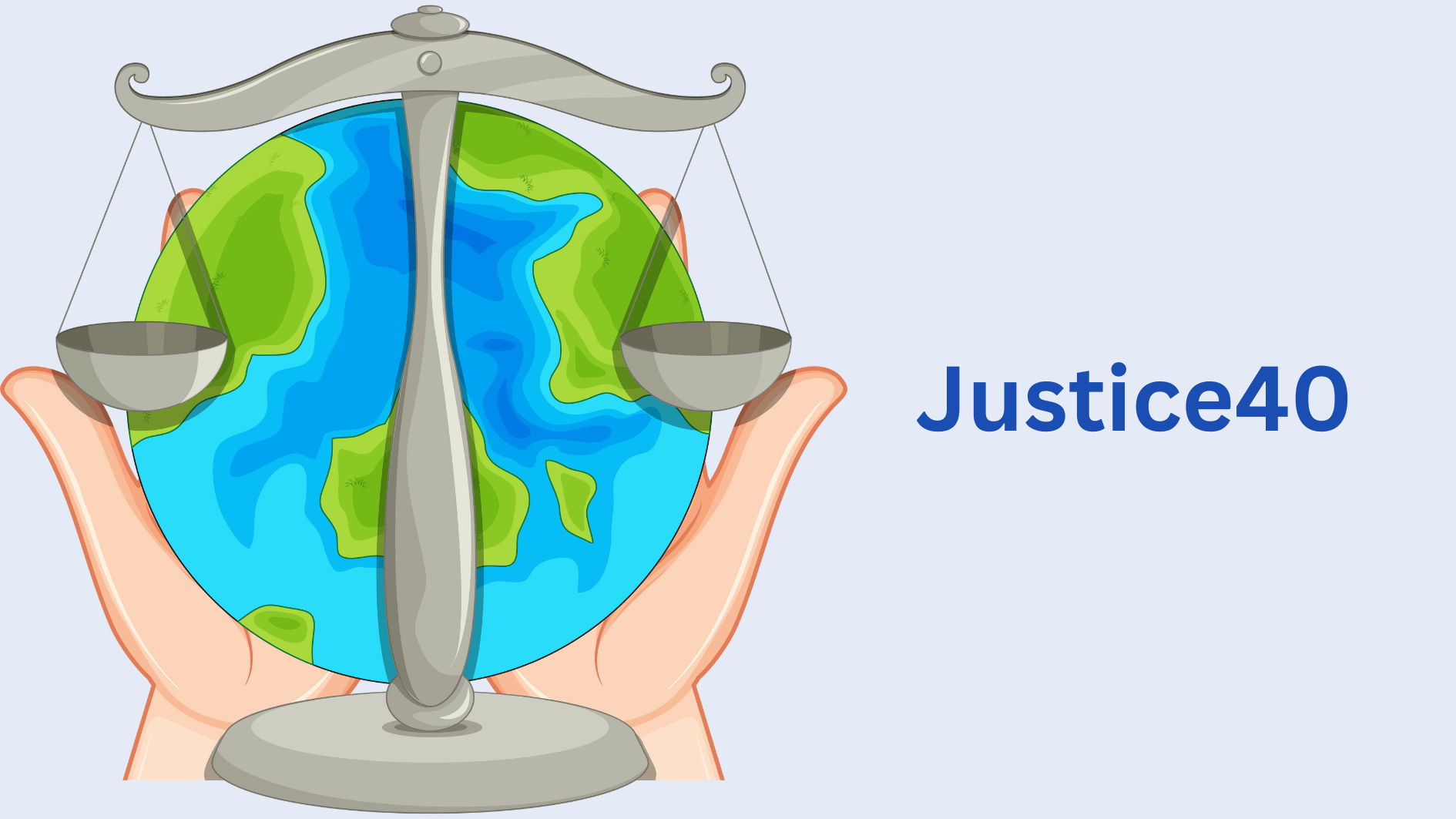Image source: Canva.com
Solar panels offer a fantastic investment opportunity, delivering affordable, sustainable solar energy for at least 25 years. However, a crucial inquiry arises: how does one maintain them? Do solar panels demand routine check-ups akin to a car to ensure optimal performance, or should they be left untouched? Keep reading to uncover the solutions to prevalent queries regarding solar panel maintenance.
Solar panels maintenance key points
- Solar panels typically need minimal upkeep, especially if they’re angled, as rainfall can clear away debris.
- It’s generally advised to clean solar panels two to four times annually, with caution.
- Clean them from ground level to avoid risks associated with climbing on the roof. Use a soft-bristled brush and non-abrasive cleaner. Clean them early in the morning to prevent issues with hot panels and cold water.
- While panel warranties usually don’t cover maintenance and cleaning, damage to panels is typically covered.
Do Solar Panels Need Maintenance?
Typically, solar panels need minimal upkeep, often just occasional light cleaning to ensure debris like dirt and leaves don’t block sunlight. You might also want to check underneath for debris or signs of animals, possibly considering solar critter guards if needed.
More extensive maintenance may be necessary if animals nest underneath, requiring critter guards, or during heavy snowfall, which can impede performance.
Can You Check the Performance of Your Solar Panels?
Yes, you can monitor energy output through an app. A decrease in output could signal obstruction, like debris. Integrating a monitoring system allows tracking of daily and cumulative energy production, revealing factors affecting performance and efficiency.
How to Care for Your Solar Panels
If tilted, rain can cleanse debris, but manual cleaning is necessary during dry spells. Recommended cleaning frequency is two to four times yearly, which isn’t labor-intensive—often requiring just a leaf blower or hose.
In winter, after heavy snow, lukewarm water or a long-handled squeegee can clear panels. Never use hot water as it can crack the tempered glass due to extreme temperature differences.
Ground-Mounted vs. Rooftop Solar Panels
In terms of maintenance, the primary divergence lies in accessibility. Ground-mounted systems are easier to reach and thus simpler to keep clean. If there’s a snow or debris accumulation, you can effortlessly sweep it away with a soft-bristled broom.
How Severe Weather Affects Your Solar Panels
Solar panels boast robust design, enabling them to endure various weather conditions, including wind, rain, and snow.
Notably, solar panels demonstrate resilience against hail, as confirmed by the Department of Energy, and have withstood hurricanes, evidenced by minimal damage during events like Hurricane Florence in North Carolina in 2018.
While they’re not completely impervious, instances of damage from hail, hurricanes, tornadoes, or lightning are rare. Quality warranties typically cover repairs or replacements for damaged panels.
Ironically, the weather that most affects panels is heat. Temperatures above 77°F (25°C) can reduce efficiency by approximately 1% per degree. However, elevating panels a few inches above ground or roof level promotes air circulation, aiding in cooling and sustaining energy production. Your solar installer will consider local climate factors during installation to mitigate hot weather impacts on panel performance.
Repairing or Replacing Solar Panels

For repairing or replacing solar panels, it’s advisable to enlist professional assistance.
If your panels are losing efficiency and remain within a performance or power output warranty, contact the installation company. They’ll dispatch a technician to evaluate and rectify the issue or replace the panels if necessary.
In cases of physical damage covered under a separate equipment warranty, collaborate with your solar installer to identify the most suitable replacement provider. Regardless, refrain from attempting installation or repairs unless you possess expertise in home solar systems.
Is Maintaining Solar Panels Difficult?
Overall, keeping your solar panels in good condition is quite straightforward. Simply spot any dust, debris, or accumulated snow, and a swift clean will maintain their efficiency. Moreover, opt for panels with robust warranties to ensure prompt replacement in case of damage.
By following these steps, your panels should consistently deliver optimal performance, providing you with clean, renewable solar energy for many years. Delve deeper into installing solar panels in your home with our beginner’s guide.





